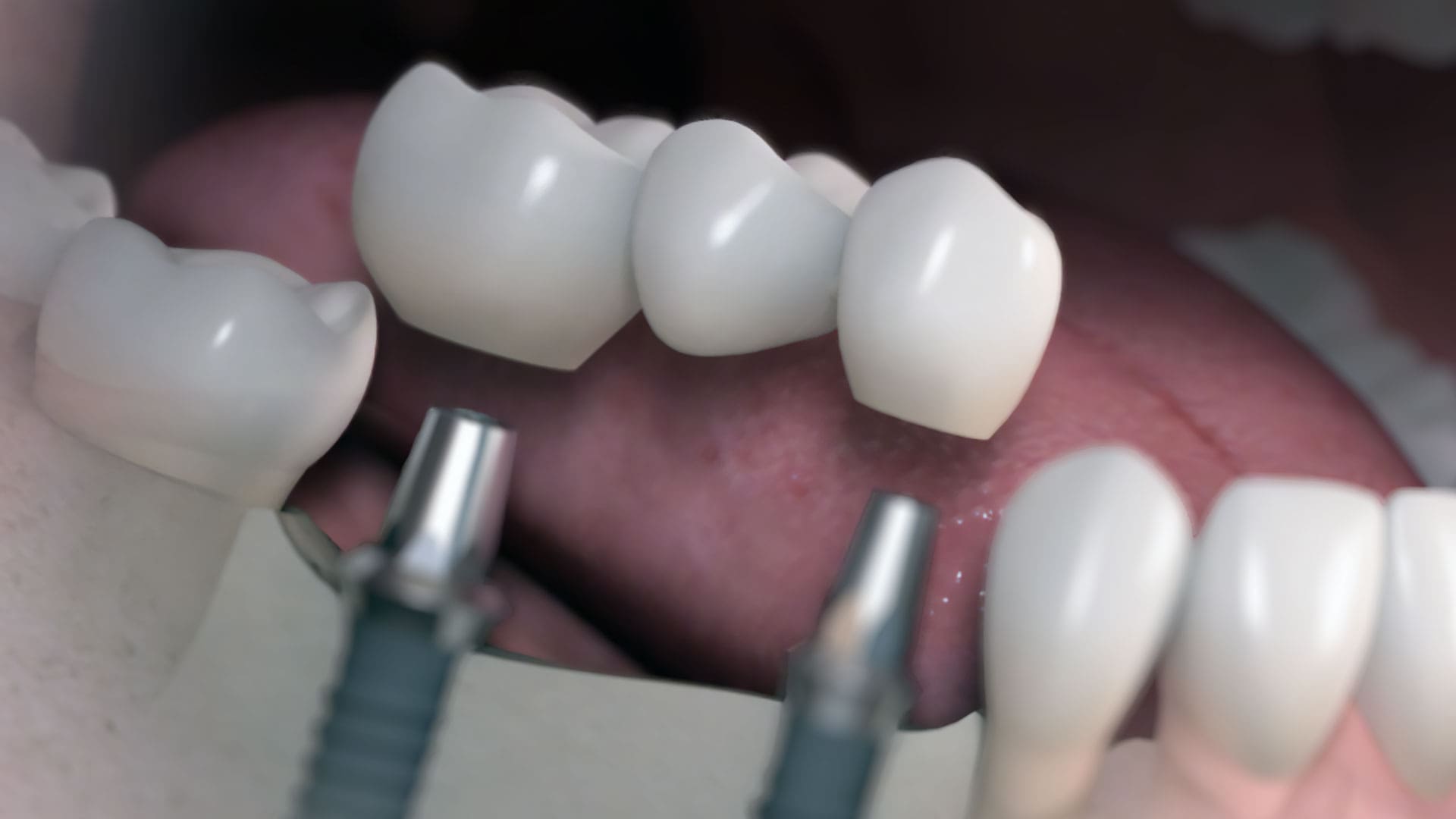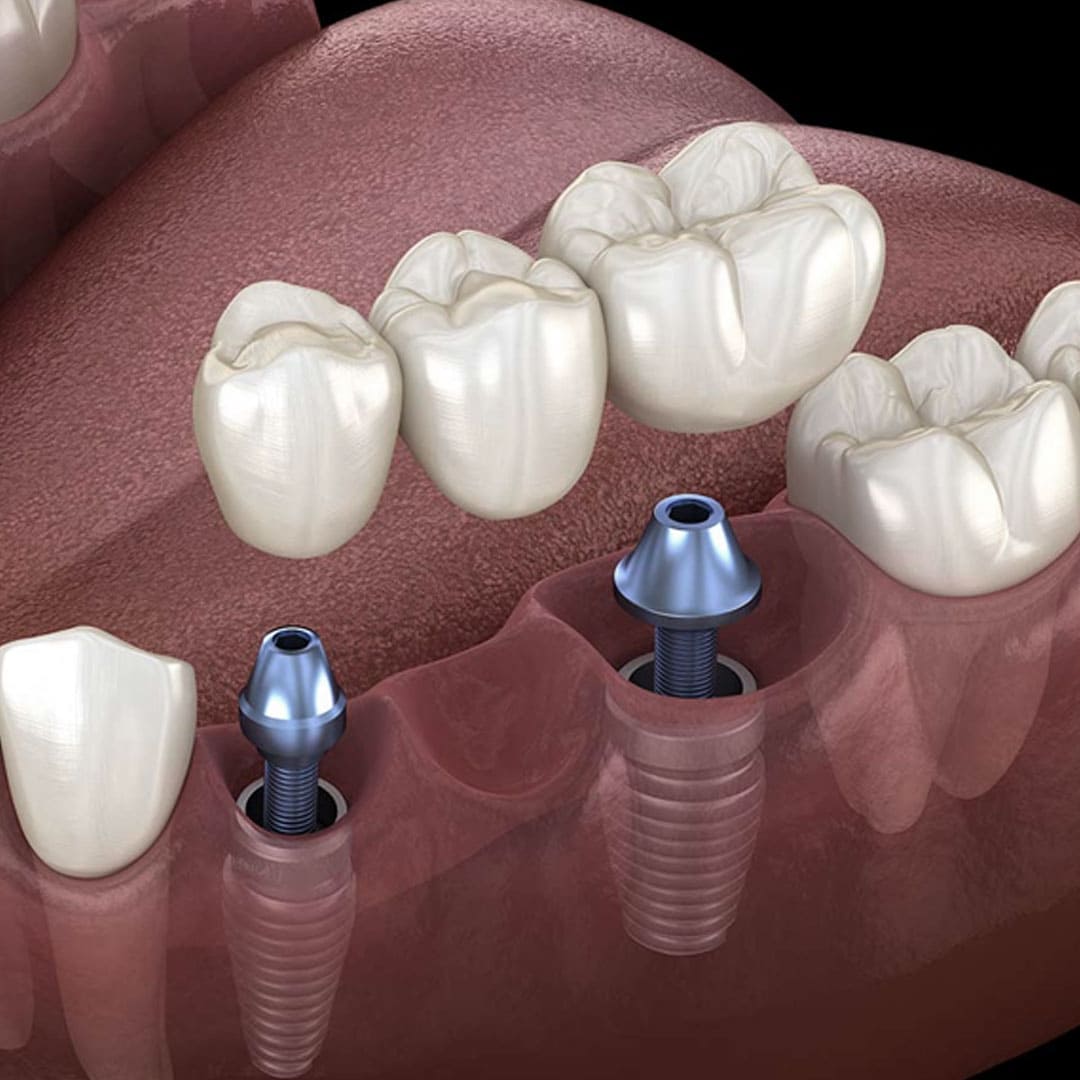
Treatment ofMultiple Tooth Loss
Treatment of Multiple Tooth Loss
What is Multiple Tooth Deficiency?
Multiple tooth loss occurs when more than one tooth is missing and negatively affects oral health, chewing functions and aesthetic appearance. Missing teeth can cause neighboring teeth to shift, the jawbone to erode and the health of the gums to deteriorate.
Implants in the Treatment of Multiple Tooth Deficiency
Implant-supported treatment options are an ideal solution for multiple missing teeth. Implants offer a fixed and permanent solution to replace missing teeth. This method is a longer-lasting and functional treatment option compared to dental bridges and dentures.
Implant Supported Bridges
In cases where more than one tooth is missing, implants can be used to support bridges. In this method, a bridge is placed over several implants, thus completing the missing teeth.
Treatment Process

Advantages of Multiple Tooth Loss Treatment

Frequently Asked Questions
How long does it take to place the implant?
The placement of a single dental implant usually takes no longer than 15 minutes. It takes about 3 months for the implant to fuse with the bone (osseointegration), after which the permanent tooth is placed.
Is the implant procedure painful?
Local anesthesia is used during implant placement, so there is no pain during the procedure. There may be slight discomfort during the healing process.
How to care for implants?
Caring for implants is like caring for natural teeth. Regular brushing, flossing and dental check-ups are necessary.
Can I get implants at any age?
Yes, patients of any age group in good general health can receive implant treatment.
Book Your Appointment
For more information about implant treatment and other dental implant options and to schedule an appointment, please click here. Contact us for a healthy and aesthetic smile.